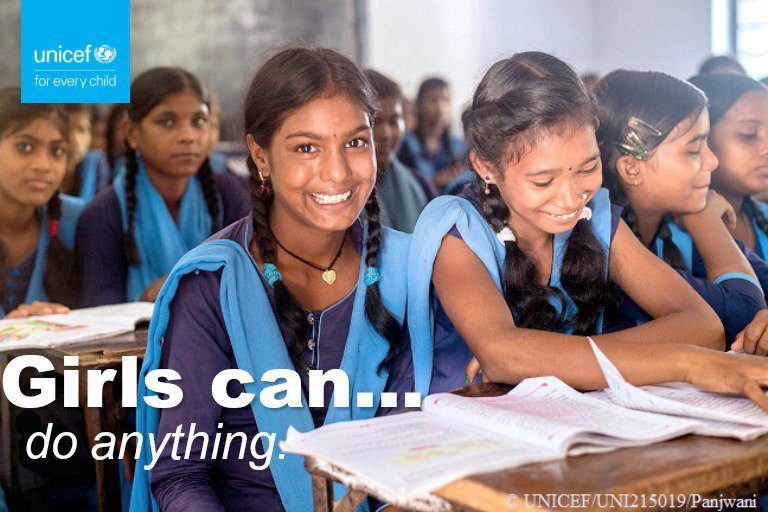By Asmau Ahmad
The United Nations Children’s Fund (UNICEF) has said about 7.6 million girls are being deprived of access to quality education in Nigeria, with a larger proportion residing in the Northern region.
The UNICEF also disclosed that Nigeria accounts for 15% of out-of-school children worldwide, even when only a mere 9% of its poorest girls have the chance to attend secondary school.
Trickling the harsh disparity in the access of girl children to education in the state, UNICEF further stated that Kano ranked second in the number of out-of-school girls in Nigeria.
UNICEF Nigeria Country Representative Ms Cristian Munduate gave the revelation on Wednesday during an occasion commemorating International Day of the Girl 2023 at Government House, Kano.
According to Munduate, “The sparkle we’ve witnessed from them today is a testament to the boundless potential that lies within every girl child. Their capabilities today have illustrated the outcomes that are possible when a girl is empowered, when she’s nurtured and given the chance to truly shine.
“Yet, the accomplishments of these girls give us hope. However, the bigger picture brings forth an alarming reality. The truth is that 7.6 million girls in Nigeria, many from the northern regions, remain deprived of these very opportunities.
“Their seats in classrooms remain vacant, their dreams momentarily deferred. This leaves them vulnerable to early childbearing, with a soaring adolescent fertility rate. Today, more than ever, we need to emphasize the transformative power of education, a tool that not only creates opportunities but actively breaks cycles of poverty.
“Nigeria, alarmingly, accounts for 15% of out-of-school children worldwide. Yet only a mere 9% of the poorest girls have the chance to attend secondary school”.
Amidst these challenges however, the UNICEF chief said there are glimmers of hope with proven models like the Girls’ Education Project 3, supported by the people of UK, where 1.5 million girls are being supported across states in Nigeria including Kano to return to school in the last two years.
Munduate used the occasion to challenged state government, communities, traditional institutions and other relevant stakeholders to raise to the prevailing challenge essentially to build a Nigeria where every girl’s dreams are within her grasp.
He said UNICEF remains committed in its mission and will continue with engagement with leaders, partners, and stakeholders to amplify investment in the welfare of girls, particularly as they face the brunt of conflicts, natural disasters, and the ever-looming threat of climate change.


